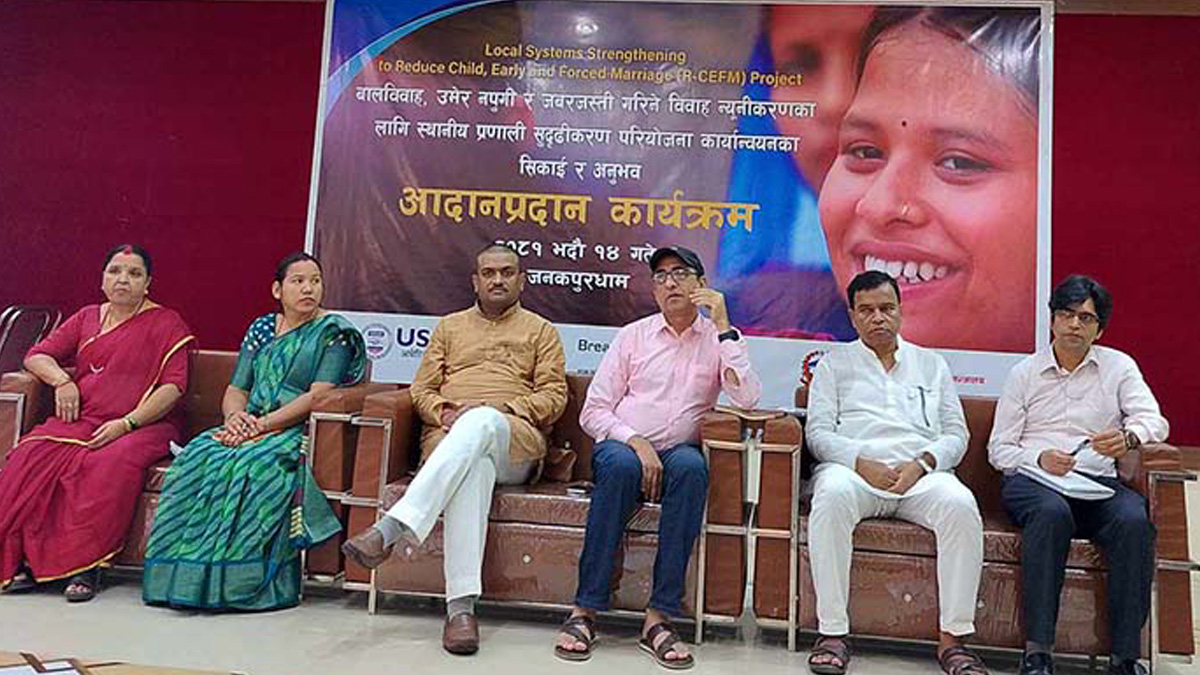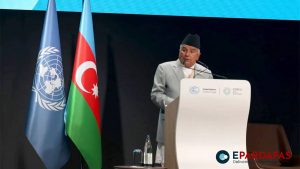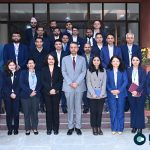
Minister Jaiswal Calls for Social Reform to Combat Child, Early, and Forced Marriages in Madhesh Province

Minister for Social Welfare in Madhesh Province, Pramod Jaiswal, emphasized the need for reform in social behavior to eliminate unjust treatment of women and girls. Speaking at a program organized under the ‘Reducing Child, Early, and Forced Marriage (R-CEFM)’ project in Janakpurdham on Friday, Minister Jaiswal highlighted that laws alone are insufficient to end discrimination. He stressed that societal change is crucial, and the R-CEFM project has initiated efforts in this direction by strengthening local systems in six municipalities.
The R-CEFM project, implemented by USAID’s Breakthrough ACTION from 2020-2024, aligns with Nepal’s government policy of prohibiting child and early marriage. The project aims to strengthen local governments’ capacity to design, implement, and monitor activities to reduce child, early, and forced marriages. By collaborating with six municipalities—Durga Bhagawati and Rajpur in Rautahat district, and Jaleswar, Matihani, Loharpatti, and Pipara in Mahottari district—the project fostered a community-based, multi-sectoral approach to protect children from such practices.
Local efforts were bolstered by mobilizing political leaders, ward officials, religious and community leaders, parents, teachers, and young girls. This collaboration enabled these stakeholders to lead the process, generate local solutions, allocate resources, and support each other, fostering local transformation in their communities.
In just three years, the R-CEFM project provided technical support to municipalities in Madhesh Province, significantly contributing to the reduction of child, early, and forced marriages. Over 2,500 community stakeholders, including child protection systems, were mobilized, and nearly 70 children’s clubs actively participated in local efforts.
During the experience-sharing program, Minister Jaiswal felicitated the municipalities for their leadership in reducing child, early, and forced marriages in their communities.












Comments